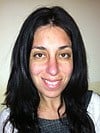Shmini
Whom Do Our (Good) Deeds Serve? Parshat Shmini describes the sacrifices that concluded the ritual marking the installation of Aaron, the high-priest, and his sons. Aaron’s delicate attention to the ritual facilitates a powerful spiritual epiphany for the entire people. We are told that God’s glory and fire appears, ‘And all the people saw and …
Read More
